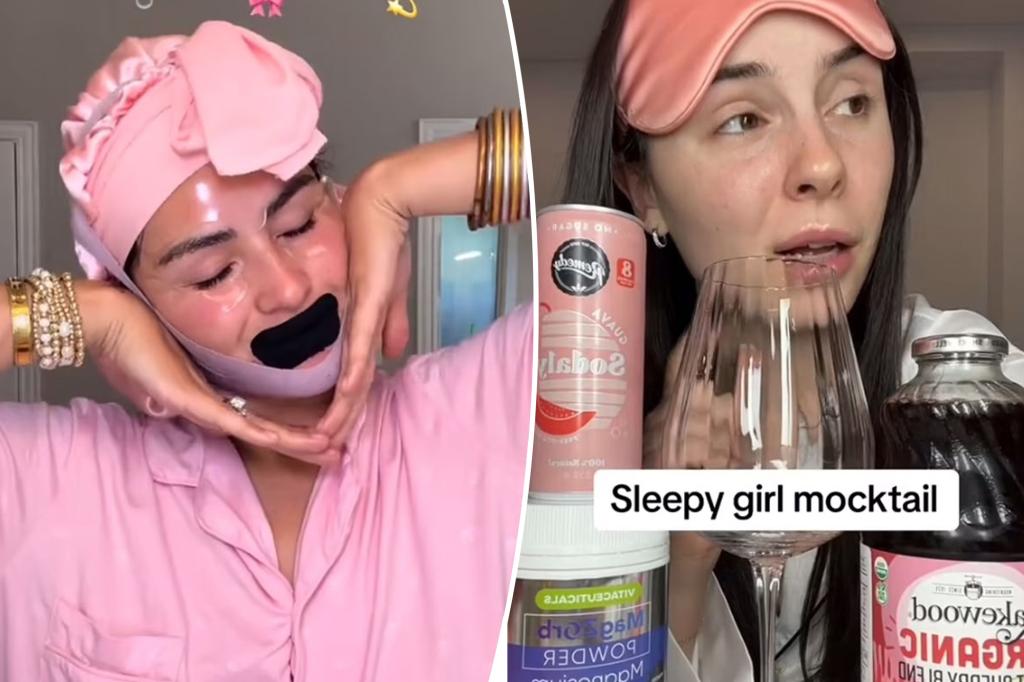In recent years, the trend of “sleepmaxxing” has emerged among young people seeking better sleep. This trend involves trying various unconventional methods to achieve longer and higher-quality sleep, such as consuming “sleepy girl mocktails” or taping mouths shut to prevent snoring. Despite the popularity of these practices on platforms like TikTok, experts warn that “sleepmaxxing” may not actually lead to improved overall health. In fact, some individuals may experience worse sleep as a result of these techniques, as they can lead to stress and anxiety, which are detrimental to sleep quality.
James Wilson, also known as “The Sleep Geek,” has expressed concerns about the negative impact of “sleepmaxxing.” He believes that this trend could potentially lead to orthosomnia, an unhealthy obsession with achieving the perfect sleep. Wilson specifically cautions against mouth taping, as it may mask symptoms of serious sleep disorders like sleep apnea. Instead, he recommends focusing on practicing nasal breathing, which can have positive effects on overall wellbeing. While some individuals may swear by certain sleepmaxxing methods, Wilson emphasizes the importance of addressing specific sleep issues and seeking appropriate advice and solutions to improve sleep quality.
One popular sleepmaxxing method involves consuming a “sleepy girl mocktail” before bedtime. This beverage typically consists of seltzer water, tart cherry juice, and magnesium powder, with users claiming it helps them achieve the best sleep of their lives. While some experts acknowledge the benefits of incorporating magnesium into the diet and its potential to promote relaxation, nutritionist Toby King warns against excessive magnesium intake, which can lead to gastrointestinal issues and excessive muscle relaxation. Despite some positive feedback, Wilson remains skeptical about the effectiveness of such drinks and questions their actual impact on sleep quality.
The rise of sleepmaxxing on platforms like TikTok has been attributed to influencers and podcasters who promote various sleep-enhancing theories and products. Wilson highlights the lack of evidence behind many of these trends and warns against blindly following practices that may not be beneficial. Instead, he recommends that individuals focus on understanding their specific sleep needs and identifying underlying causes of poor sleep. By addressing these issues and seeking appropriate advice and interventions, individuals can develop personalized strategies to improve their sleep quality without relying on potentially harmful or unproven trends.
Overall, the trend of sleepmaxxing reflects a growing desire among young people to prioritize sleep and explore unconventional methods for achieving better rest. While some individuals may find success with certain sleep-enhancing practices, experts caution against blindly following trends that lack scientific evidence or may have negative consequences. By focusing on individual sleep needs, seeking professional guidance, and making informed decisions about sleep habits, individuals can develop effective strategies for improving their overall sleep quality without resorting to potentially harmful fads. As the conversation around sleep continues to evolve, it is essential to approach sleep enhancement with a critical and holistic perspective to ensure long-term health and well-being.


